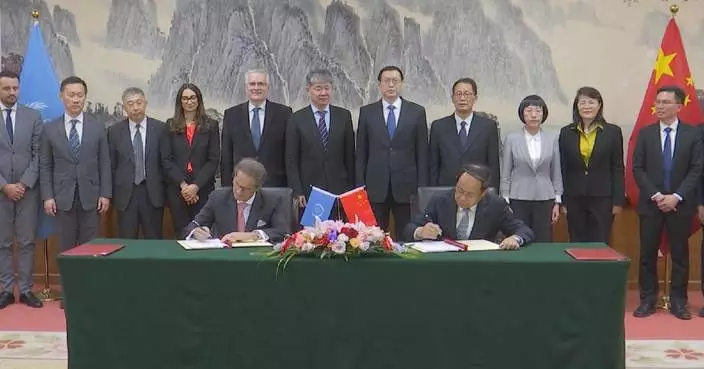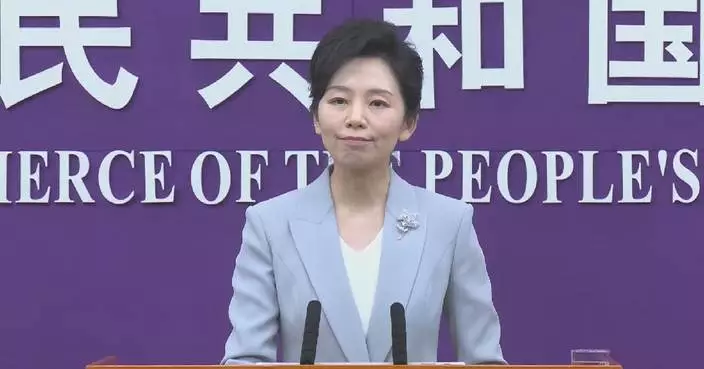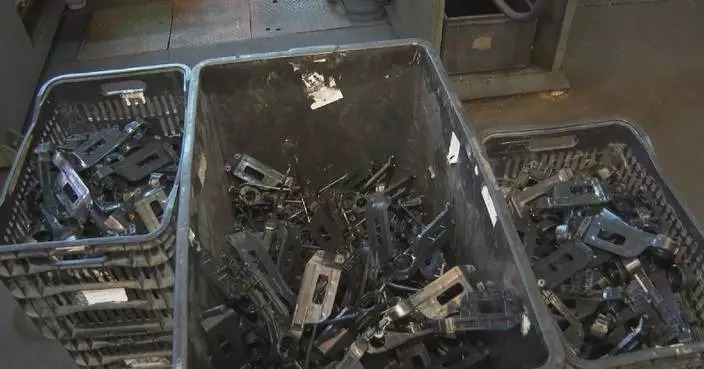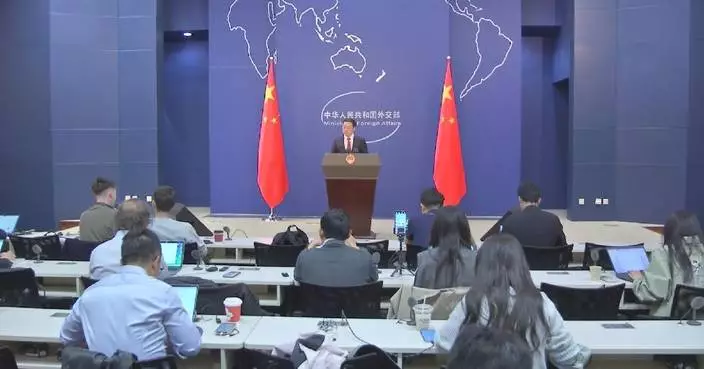China has been strengthening large-scale equipment upgrades in the industrial sector this year, promoting industrial development and the green transformation while unleashing potential domestic demand, according to the Ministry of Industry and Information Technology (MIIT).
Investment in equipment, tools and instruments increased by 16.4 percent year on year in the first three quarters of 2024, with especially high growth in the production of high-tech and high-value-added products such as AI chips and servers.
"Large-scale equipment upgrades are not just short-term economic stimulus measures, but also medium and long-term measures consolidating the foundations of the economy. Through this policy stimulus, the space for updating these idle assets will be opened up, promoting the development of the economy and injecting over five trillion yuan (about 691.3 billion U.S. dollars) into economic development," said Fan Meng, director of the Industrial Investment Research Office at the Planning Research Institute of the CCID Consulting under the MIIT.
According to the MIIT, China will carry out large-scale equipment upgrades in 27 key industrial sectors in the next step, including petrochemical and chemical industries, the iron and steel industry, auto industry, industrial robotics and shipbuilding industry.
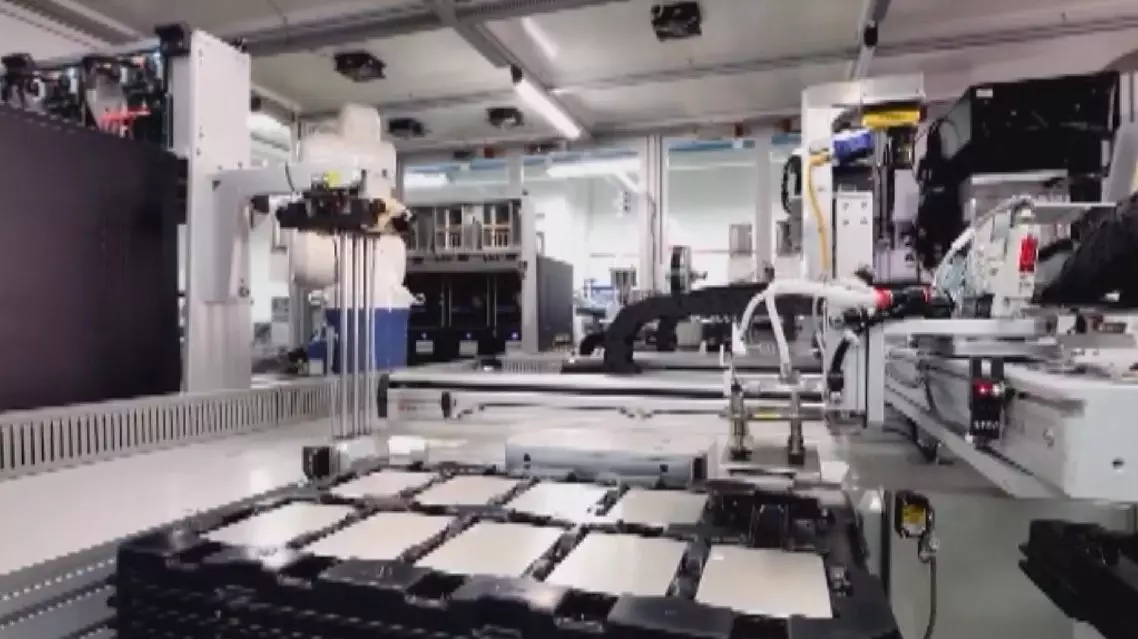
Upgrades of Chinese industrial equipment accelerate through 2024
China has pledged additional emergency humanitarian aid to Myanmar following the devastating earthquake, aimed at supporting ongoing relief efforts with a focus on urgent needs such as medical supplies and reconstruction, Foreign Ministry spokesman Lin Jian announced on Thursday.
During a press briefing in Beijing, Lin outlined the details of the aid and summarized China's immediate involvement in the search and rescue operations following the March 28 earthquake.
"Since the outbreak of the earthquake, Chinese rescue forces have rallied around and saved lives against time. China was the first country that announced emergency assistance to Myanmar, sent rescue forces to the country, and set up settlement centers in the affected areas. The Chinese rescue team found the first trapped survivor. More than 30 rescue teams of over 600 members rushed to Myanmar for rescue work and we offered several batches of supplies, which demonstrates China's speed, contribution and kindness. This is warmly welcomed and appreciated by the people in Myanmar," said Lin.
Lin also emphasized the significance of the "pauk-phaw" friendship -- a Myanmar term for siblings - in the context of China's ongoing support.
"Myanmar's disaster response work has moved to epidemic prevention and control, as well as recovery and reconstruction. As a friendly neighbor and 'pauk-phaw' brother, China has decided to send another batch of emergency humanitarian supplies, which include the most needed refined oil, prefabricated houses, operating rooms, medicines, and vaccines. China will also dispatch medical and epidemic prevention experts for treatment and disinfection, as well as experts to examine, assess, reinforce, and repair affected buildings and cultural relics. A merciless disaster brings the best out of humanity. China will continue to promote the China-Myanmar 'pauk-phaw' friendship and, upholding the spirit of the China-Myanmar community with a shared future, help the people in Myanmar overcome difficulties and rebuild their homes," Lin added.
The earthquake, which struck Mandalay on March 28, has claimed 3,649 lives, injured 5,018 people, and left 145 missing, according to the Information Team of Myanmar's State Administration Council on Wednesday.
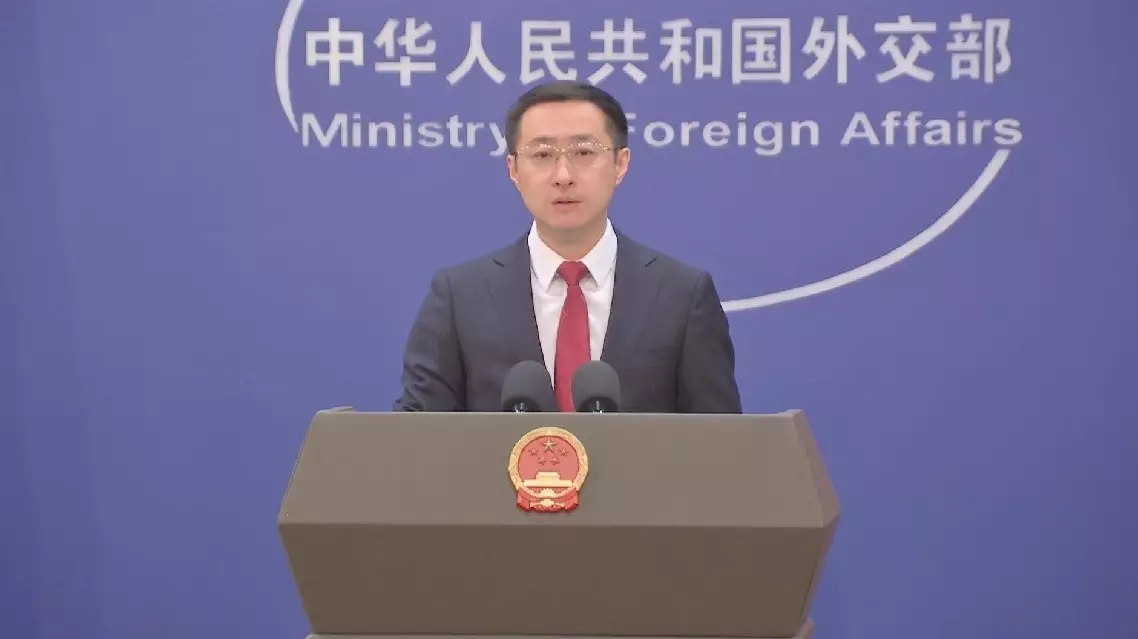
China to provide additional emergency aid to Myanmar following earthquake: spokesman






